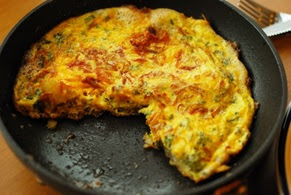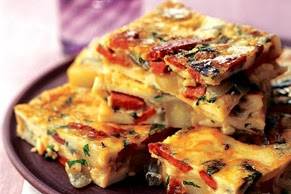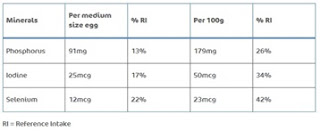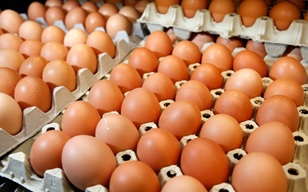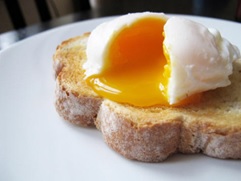This Thursdays blog is
brought to you by a commonly asked question-usually straight after “How’s all
that nutrition stuff going?” I get “So should I do a detox?” This week I got asked this question slightly
more specifically – “Should I do a liver
detox?” So that’s what I thought we
should focus in on this week. So starting
with the liver and its function in your body, understanding how it works and
what it does, I’m hoping will help you answer the question yourself as to
whether you should detox it or not.
After looking at the liver function though lets talk a bit about toxins
(with special reference to alcohol) and detoxing. That way you have both sides of the story and
can make a more informed decision regarding detox (or not as the case may be)
that will work for you.
 OUR LIVER:
OUR LIVER: - The liver is the largest internal organ in your body
- It forms a major part of the digestive system
- 3 main liver functions are:
- To get rid of toxins
- To regulate your blood sugar
- To produce bile to break down fats
- The liver holds 2 main groups of cells that do separate jobs, we will focus on: Hepatic cells – these carry out more chemical processes than any other cells in your body. Basically they convert the nutrients from the foods you consume into forms the cells in your body can use. For example they convert sugars and store/release them as needed so regulate your blood sugar level plus they break down fats and release cholesterol. They also detoxify drugs and alcohol, among other toxins we consume, plus they produce bile, which in turn, breaks down fats in the foods we eat
I want to keep you with
me here and remember we are aiming to talk about detoxing, so won’t go too far
further into the science of the liver function – from those basics you can see
though that is an extremely important organ in your body and therefore probably
why people are so concerned with keeping it healthy.
If the liver fails, the
human body can usually only survive 24hrs or less – again this emphasises how
important the organ is for us and why we need to keep it working well.
 LIVER DISEASE:
LIVER DISEASE:
As you can see already then,
the liver does a lot – therefore the effects of liver damage, disease, cancer
or cirrhosis can impact on a lot of our major body processes, 3 main effects of
liver damage (this list is not exhaustive, there are many other issues we can
experience when our livers are not functioning optimally, but):
1) Blood sugars would not be regulated, glucose not stored
correctly leading to fatigue, and/or diabetes.
2) Fats/cholesterol would not be monitored and transferred as
appropriate, so levels of “bad” or LDL cholesterol may increase impacting other
body systems and functions too when getting into the blood stream.
3) Drugs, alcohol and other toxins consumed would not be broken
down and passed through the body appropriately – Storing toxins in the liver or
the liver releasing them without them being properly processed can lead to all
sorts of problems as I’m sure you can imagine!
A NOTE ON ALCOHOL AND LIVER FUNCTION:
 Chronic alcohol
consumption or alcohol misuse is often associated with impaired nutritional
status. That can be due to a “bad diet”
but also due to the liver having to spend more of its effort detoxing the alcohol,
therefore having less time to convert and absorb the nutrients it should be
getting from foods.
Chronic alcohol
consumption or alcohol misuse is often associated with impaired nutritional
status. That can be due to a “bad diet”
but also due to the liver having to spend more of its effort detoxing the alcohol,
therefore having less time to convert and absorb the nutrients it should be
getting from foods.
Alcohol therefore impairs
your choice to eat well and your bodies function for nutrient absorption of
what you do eat – leading to – malnutrition.
Alcohol has also been
shown to react to prohibit absorption of certain nutrients too.
It’s a 3 prong attack and
too much alcohol and the liver simply cannot cope. “Too much” is usually consuming a moderate to
large amount of alcohol over a long time period – the liver will be processing
and detoxifying a bit more than natural every day until it really wears
out.
- As we already know the liver is pretty much acting as a clearing house or filter, recognising millions of potential harmful chemicals and transforming them into something harmless we can then use, or preparing them for elimination.
- It does this by sticking other things to the harmful toxins – ie disarming them or converting/moderating them in some way. This process is called conjugation.
- There are 4 forms of conjugation - you don’t really need to know these, but be aware each form requires an adequate supply of nutrients fundamental to them working. Remember also that no nutrient works in isolation.
- It therefore follows that for optimum detoxification we should ensure we are consuming enough antioxidant rich foods.
RECOMMENDATIONS:
Antioxidant foods (specific
to the liver) include –
- Onions and Garlic
- Artichokes
- Watercress and Rocket
- plus Cruciferous veg – ie Broccoli, Sprouts, Cabbage, Cauliflower, Kale, Raddish, plus Berries, Nuts and Seeds.
- Also gluten free grains such as brown rice, or oats can be added to an antioxidant rich diet.
It’s also suggested – to
keep a healthy liver -
- You maintain a healthy body weight
- Enjoy moderate physical
activity

- Consume “toxins” in your foods sparingly (eg cut down on sugary drinks, fatty foods etc)
- Eat more unprocessed (less toxic) foods ie – fruits and vegetables as recognised above
- Cut down on eating red meats, processed meats, fatty meats
- Limit your caffeine and
especially alcohol consumption


Health experts through
the years have highlighted the value of a detox in the same way as we would
take a break from work – a holiday – we should take a break from our regular
diet – a detox – usually through fasting once or twice a year.
As this is not practical
for many and increasingly we can see results that are anything but good from
this fasting method, “detox diets” have become more and more popular. This is probably due to their impact on
weight loss too rather than their detoxing properties.
Most detox diets suggest
a combination of juices (fruit and veg), higher water consumption, lower
calorie consumption – ie they suggest eating fruits and veggies and not much
else. This may in fact help you lose
weight and feel fresher, lighter or more energised to start with, however over
time you will become hungry, and tired, irritable, and soon – malnourished.
Detox diets have therefore
been proven to add to yoyo dieting regimes of those on a weight loss mission,
rather than to aid the detoxification process of the liver.
We would suggest then
that prevention is always better than cure.
If you are basically healthy and want to maintain optimal liver function
my best advice would be to nourish the liver and nourish the whole body by
reducing your intake of toxic substances.
You should do this while following a healthy eating plan, not a limitation
diet that you cannot maintain. If you
feel you need a kick start, add some extra nourishment in the form of the fruits
and veggies as already talked about rather than limiting your intake of other
nutrients such as carbohydrate, fat, or fibre.
There is a lot to be said
for a balanced and varied diet, moderate activity or exercise, drinking sufficient
water every day and limiting your intake of toxins – that’s just the way it is
and there is no getting round it, unfortunately, we see no shortcuts if you
want a healthy liver function.
Let me know what you think, or any detox diets you’ve tried.
You can email info@nitakothari.com, tweet us @nononsensenita or like us and leave a comment
on facebook
As always you can find out more via www.nitakothari.com, email info@nitakothari.com for further details, or bookings@nitakothari.com for consultation,
workshop details and clinics.
You can also get involved via:
And so you don’t miss a thing follow this blog at www.nononsensenita.blogspot.co.uk
Take a look over on the NHS Livewell site too – start here
to read more about liver disease: http://www.nhs.uk/conditions/liver-disease/Pages/Introduction.aspx
**If you are of ill health, pregnant or
a child under 16yrs, please be advised any detox guidelines may
differ**
**Please remember this is nutritional
advice ONLY (as is all other information and advice contained in this blog and
the websites and social media related to it) – none of the info or advice is
intended to override any recommendation from your GP or health professional**



